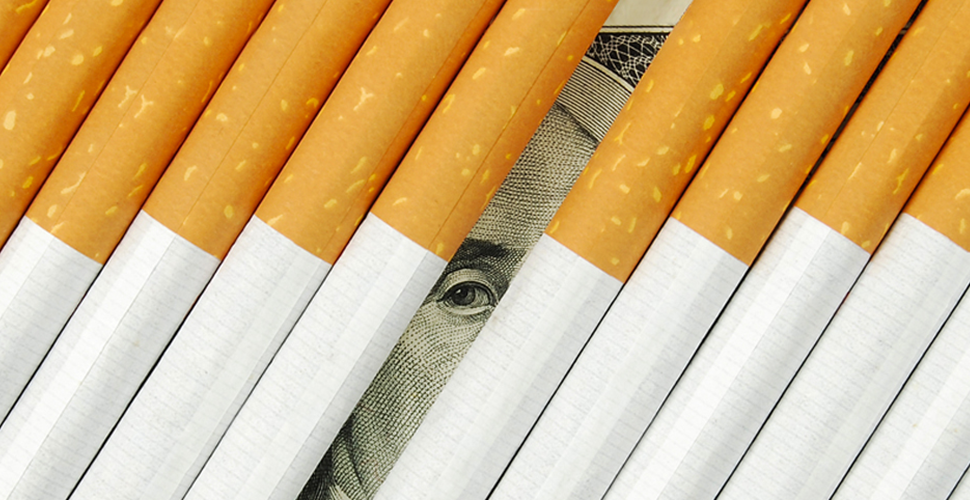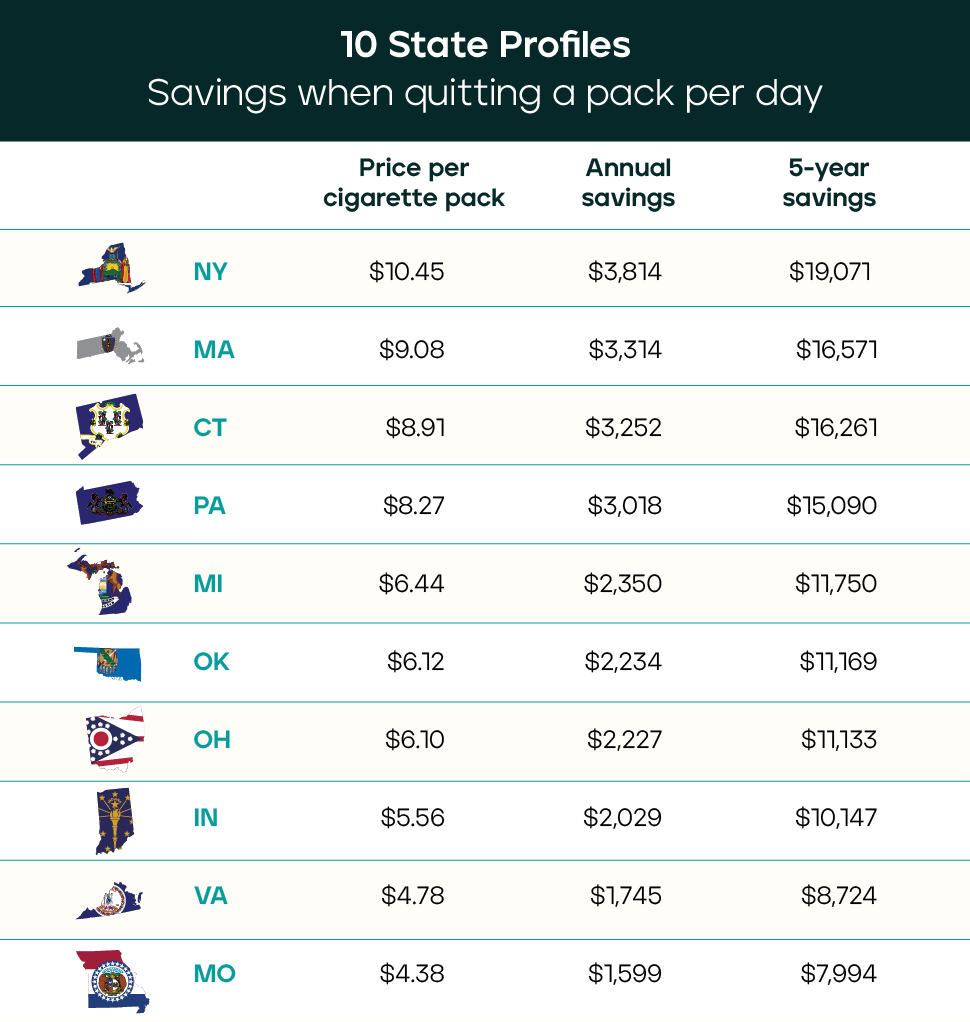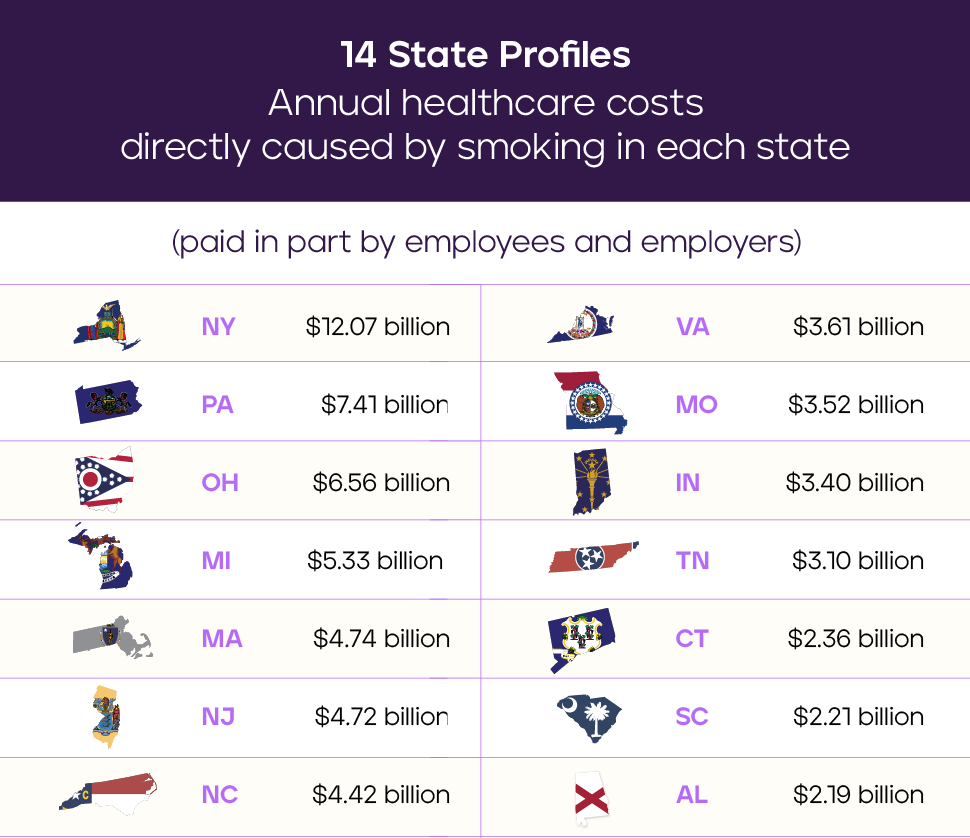So just how does tobacco use negatively impact personal finances?
To answer that, think about this: Would an extra $300 or so each month help your cash-strapped employees?
It’s possible to add sizable dollars like this to their wallets when you help them quit tobacco.
We see EX Program participants regularly share stories of the financial benefits of not smoking.
For example, one participant used EX Program to quit her two-pack-a-day nicotine addiction. She saved $21,000 in 1,000 days since her last cigarette and applied those savings to buy a new home.
Another EX Program participant banked $500 in 50 days by not buying cigarettes. He is stashing away these growing savings to buy a new car since his current one is on its last leg.
In today’s economic environment, HR leaders are looking to employee benefits for financial wellness to fill the gap. Helping employees quit tobacco is an important way that you can strengthen employee financial wellness.
Negative financial effects of smoking cigarettes
With inflation and rising expenses, employees are more concerned than ever about their current and future financial states.
According to a a study released by Bank of America, only 42% of U.S. employees rate their financial health as good or excellent, marking a 10-year low.
But one component that doesn’t often come to mind with financial health is helping employees reduce their out-of-pocket spending. When an individual quits tobacco, these potential savings include zero or reduced spending on:
- Tobacco. Due to taxes, the cost of cigarettes varies per state, but it’s still a significant expense. The highest per-pack cost in New York at $10.45, so if a smoker has a pack-a-day addiction, that’s $313.50 per month. Even at an average per-pack rate that’s lower, employees will still be saving thousands of dollars yearly by quitting.
- Healthcare. Smoking harms nearly every organ in the body, resulting in higher healthcare expenses for smokers. The laundry list of costly health issues that tobacco use can cause include heart disease, COPD, diabetes, and lung cancer.
Source: The Toll of Tobacco in the United States
Once a person quits smoking, health improvements happen quickly. Minutes after the last cigarette, their heart rate slows. The risk of a heart attack drops sharply in 1 to 2 years after quitting. After 5 to 10 years, stroke risk decreases, and the risk of developing mouth or throat cancer drops in half.
- Less obvious expenses. So how does tobacco use negatively impact personal finances? The costs of buying tobacco and healthcare expenses for using tobacco are well-known. However, some expenses tobacco users pay may be under-the-radar and add up to a financial hit over time. People who smoke also pay less obvious costs such as:
Sources: https://www.cdc.gov/oralhealth/infographics/older-adult-tooth-loss-by-smoking-status-tabs.html https://www.forbes.com/health/body/how-much-dental-implants-cost/ https://www.forbes.com/advisor/life-insurance/smokers/
Financial benefits of quitting smoking
Financial wellness, like tobacco cessation, will remain a crucial part of employee health long after the pandemic has passed. But now is the time to address the topic and alleviate the financial strain felt by many who are trying to quit tobacco.
To see how the EX Program can help your employees improve financial wellness by quitting tobacco, please contact us to see a demo today.








